A career in non-durables may be a great fit for you if you enjoy working with essential everyday products. This industry provides stability, as the demand for items like food, household supplies, and clothing remains constant. There are a variety of roles available, from retail management to product design, allowing you to align your strengths with your passions. Additionally, job opportunities are plentiful, making career advancement easy. While challenges such as market competition exist, the industry’s growth acts as a safeguard against economic downturns. If you’re interested in learning more about the specific roles and trends in this field, there is much to explore.
Key Takeaways
- If you enjoy working with everyday consumer products and have a passion for innovation, a career in non-durables may be ideal for you.
- A steady demand for non-durable goods ensures job stability and opportunities for growth in various roles across the industry.
- If you value sustainability and eco-friendly practices, the non-durable sector is adapting to consumer preferences, allowing you to make an impact.
- The dynamic nature of the non-durables industry requires adaptability and creativity, making it suitable for those who thrive in fast-paced environments.
Understanding Non-Durable Goods
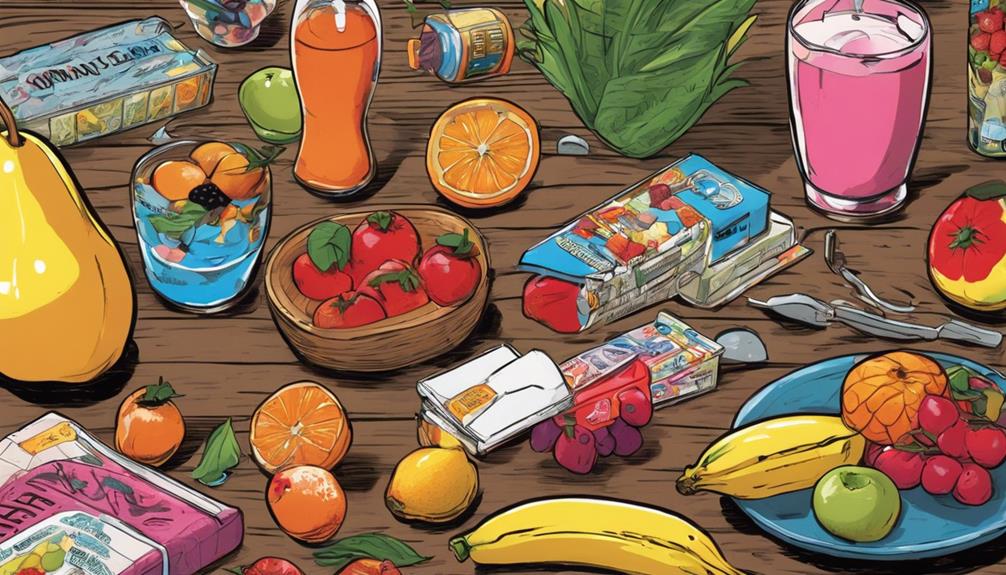
Non-durable goods are everyday items you use up quickly, like food and cleaning supplies, that require frequent repurchases. These items typically last for only a short time—often consumed in one or just a few uses.
Unlike durable goods, which can last over three years, non-durables need to be replenished regularly. This constant demand creates a steady cash flow in the economy, as consumers consistently purchase these essential products.
Industries that produce non-durable goods rely on this ongoing demand, benefiting from a loyal customer base. Understanding the characteristics of non-durable goods can help you recognize their importance in everyday life and the economy, paving the way for potential career opportunities in this vibrant sector.
Key Examples of Non-Durables
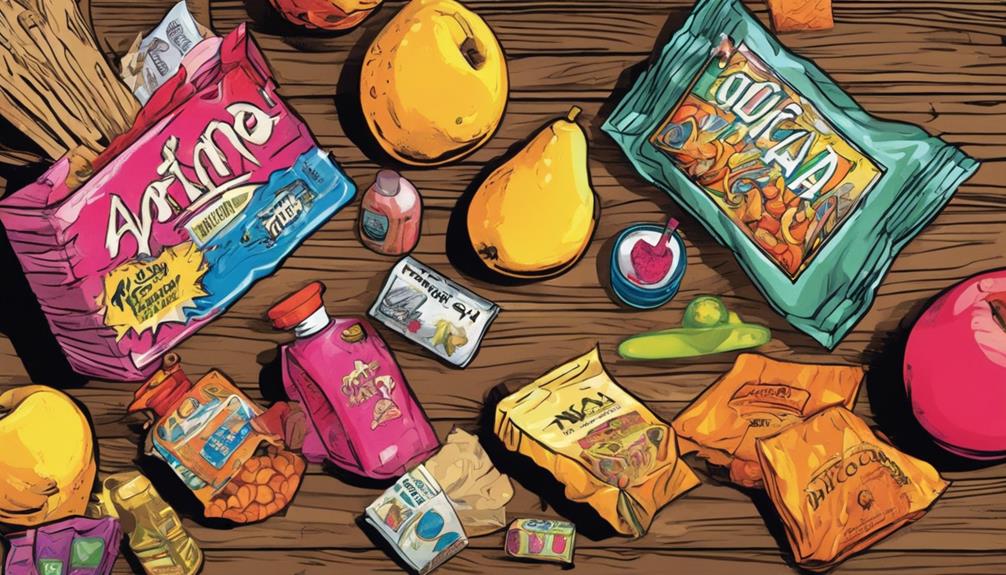
You likely encounter various examples of non-durable goods daily, from your morning coffee to the cleaning supplies you use around the house.
These goods include food items like fruits, vegetables, and snacks you consume quickly.
Household products such as dish soap, laundry detergent, and paper towels are also key examples.
Clothing, light bulbs, toys, and games fall into this category, too, as they're used up or worn out over time.
You'll find non-durable goods in nearly every aspect of your life, highlighting their importance and necessity.
The tactile experience of these products not only satisfies your immediate needs but also emphasizes their role in your daily routine.
Understanding these examples can help you appreciate the non-durable goods sector better.
Economic Significance of Non-Durables
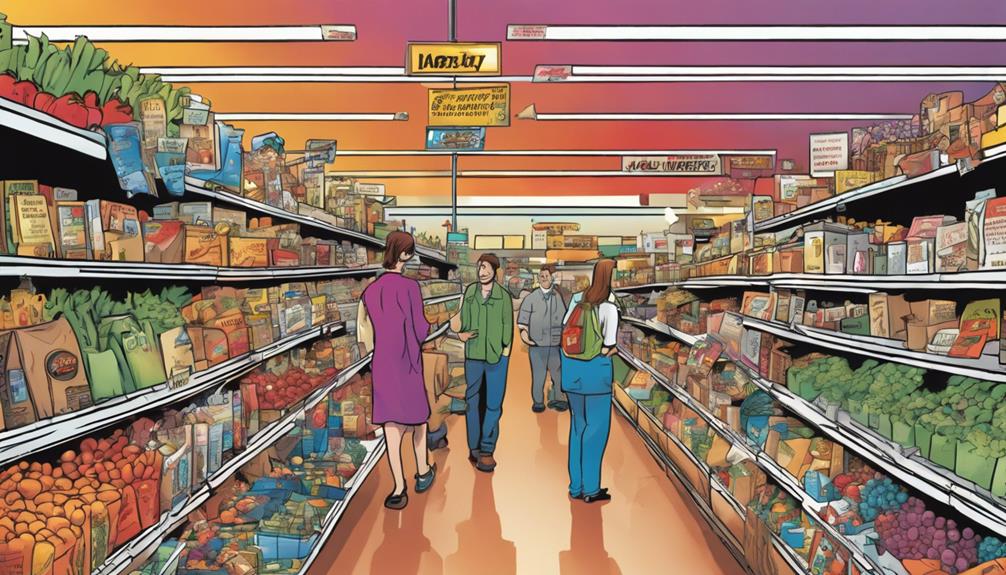
The economic significance of non-durables lies in their ability to drive consistent consumer spending, which plays an essential role in maintaining a stable GDP.
These products, including food, cleaning supplies, and personal care items, are necessities in daily life, leading to regular purchases.
Since non-durables tend to be less affected by economic fluctuations, their steady demand helps buffer the economy during downturns.
They reflect consumer confidence and spending behavior, making them important indicators of economic health.
By enabling a constant flow of cash, non-durable goods contribute to job creation and industry growth, fostering overall economic stability.
Understanding their impact can help you appreciate the broader implications of your career choices in this crucial sector.
Career Opportunities in Non-Durables
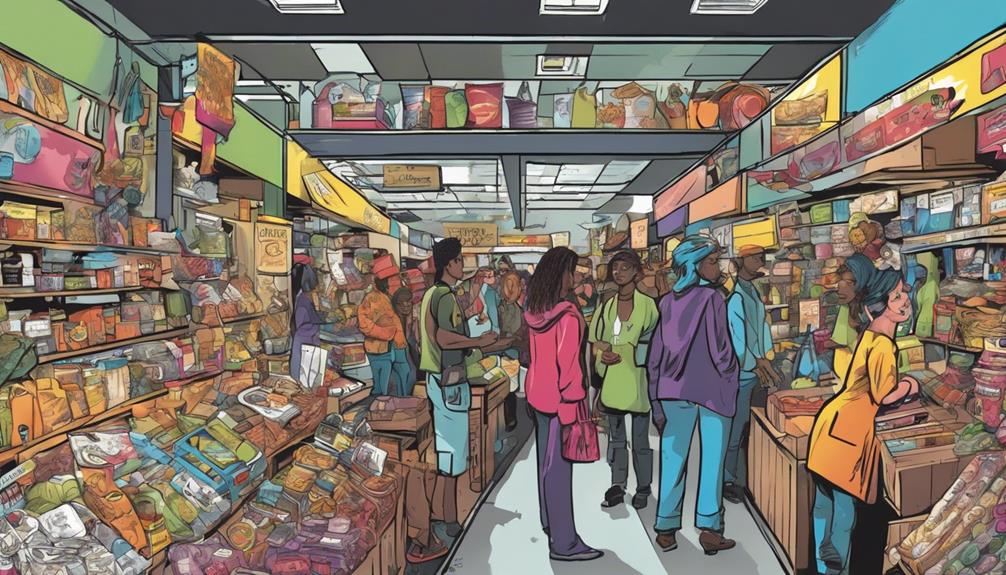
Exploring career opportunities in the non-durables sector reveals a wealth of diverse paths, from retail positions to specialized roles like food technology and design.
You can find various job options that cater to different interests and skill sets, whether you're starting your career or looking to advance. Entry-level roles, such as grocery store employees or waitstaff, offer a solid foundation for growth.
As you gain experience, you could move into management positions or explore entrepreneurial ventures within the industry. The demand for non-durable goods guarantees that job stability is likely, allowing you to build a rewarding career.
With numerous opportunities available, you can carve out a niche that aligns with your passions and strengths.
Diverse Career Paths Available
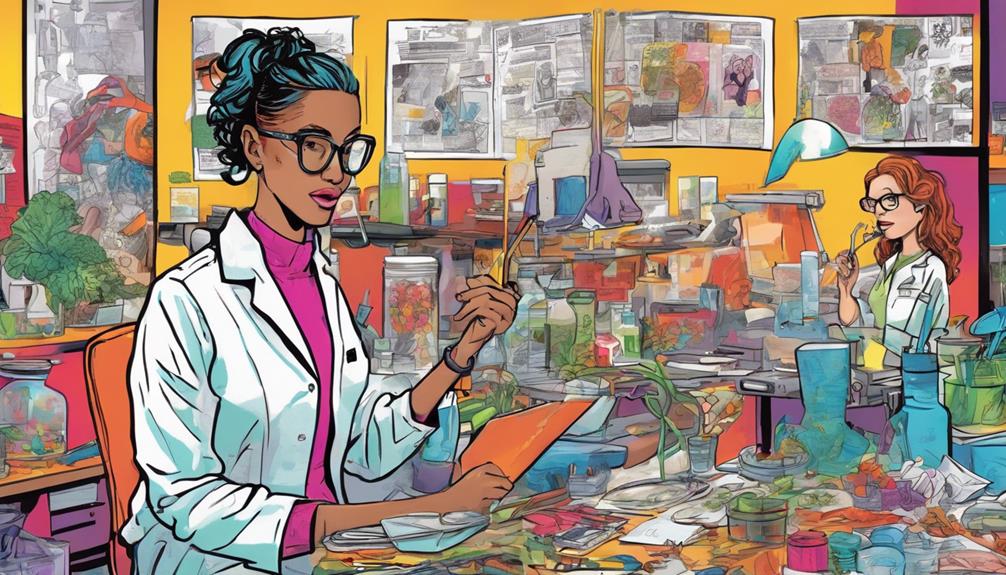
With numerous entry-level roles laid out in the non-durables sector, a variety of career paths awaits those ready to advance their professional journey. You can explore opportunities that align with your skills and interests, ensuring a fulfilling career.
Here are four paths you might consider:
- Food Technologist: Innovate and improve food products for safety and quality.
- Retail Manager: Oversee store operations, manage teams, and drive sales.
- Brand Specialist: Develop marketing strategies to promote non-durable goods.
- Product Designer: Create and refine consumer products, focusing on usability and appeal.
These diverse roles not only offer professional growth but also a chance to make an impact within the dynamic non-durables industry.
Industry Trends and Insights
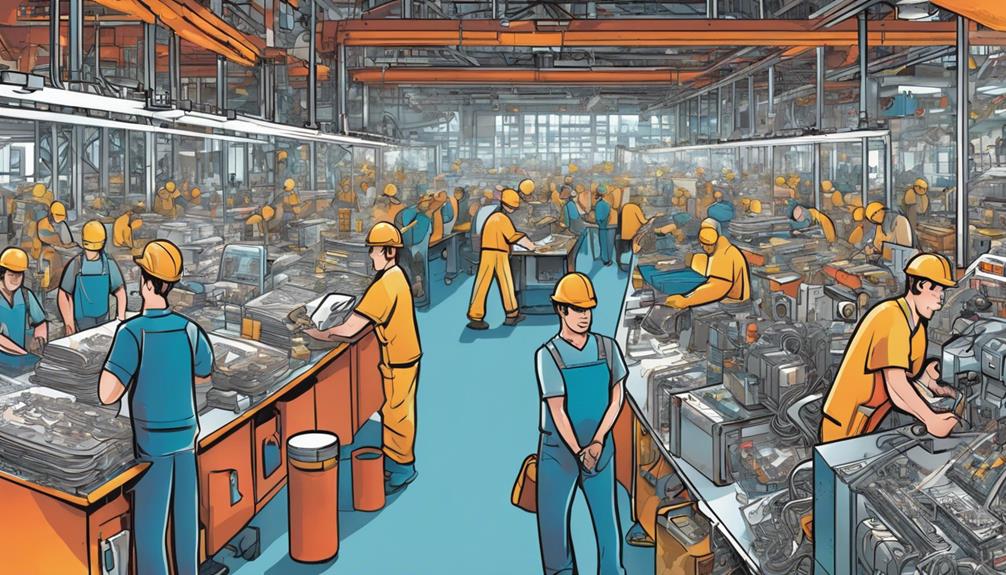
Staying ahead in the non-durables industry means keeping a close eye on emerging trends and insights that shape consumer behavior and market dynamics.
Consumers are increasingly gravitating toward sustainable and eco-friendly products, pushing companies to adapt their offerings.
Digital transformation is also a game-changer; online shopping and e-commerce are on the rise, meaning you need to leverage effective marketing strategies to reach your audience.
Furthermore, health-conscious choices are gaining traction, leading to a demand for organic and natural products.
Finally, keeping an eye on supply chain innovations can give you a competitive edge.
Challenges in the Non-Durable Sector

Steering through the non-durable sector comes with its own set of challenges that can impact both businesses and career prospects.
To navigate these hurdles, you'll need to be aware of key issues that affect the industry:
- High Competition: With numerous players in the market, standing out requires innovative strategies.
- Market Volatility: Consumer preferences shift rapidly, necessitating adaptability in products and marketing.
- Regulatory Changes: Compliance with evolving regulations can strain resources and complicate operations.
- Supply Chain Disruptions: Fluctuations in supply can impact availability and increase costs.
Recognizing these challenges is essential for anyone considering a career in this dynamic field, as they shape both the job landscape and business success.
Frequently Asked Questions
What Qualifications Are Needed for Entry-Level Jobs in Non-Durables?
For entry-level jobs in non-durables, you'll typically need a high school diploma or equivalent. Skills in customer service, basic math, and teamwork are essential, along with a willingness to learn and adapt in this dynamic industry.
How Can I Gain Experience in the Non-Durable Goods Industry?
To gain experience in the non-durable goods industry, seek internships, volunteer in retail, or shadow professionals. Networking and attending industry events can also help you learn and connect with potential employers.
Are There Remote Job Opportunities in the Non-Durable Sector?
Yes, there're remote job opportunities in the non-durable sector. You can explore roles in marketing, sales, or customer service. Many companies offer flexibility, allowing you to work from home while contributing to this essential industry.
What Skills Are Most Valued in Non-Durable Goods Careers?
In non-durable goods careers, you'll find strong communication, adaptability, and customer service skills are highly valued. Analytical thinking and creativity also play vital roles, helping you excel in a competitive and fast-paced environment.
How Does Sustainability Impact the Non-Durable Goods Industry?
Sustainability's like a guiding star for the non-durable goods industry. It drives innovation, shapes consumer preferences, and challenges you to create eco-friendly products. Embracing this shift can enhance your brand's appeal and market viability.
What Lessons from “The 100 Startup” Can be Applied to a Career in Non-Durables?
The best entrepreneurship lessons from book “The $100 Startup” can be applied to a career in non-durables by emphasizing the importance of identifying a niche market and providing unique value to customers. By focusing on lean business practices and effective marketing strategies, non-durables professionals can achieve success without significant investment.
Conclusion
As you weigh your options, picture yourself thriving in the bustling world of non-durable goods, where each day brings new challenges and opportunities.
Imagine diving into product innovation or leading a retail team that shapes consumer experiences.
The thrill of contributing to an essential industry is palpable, yet the path isn't without its hurdles.
Will you seize the chance to make your mark in this dynamic sector, or will you let it pass by?
The choice is yours.









